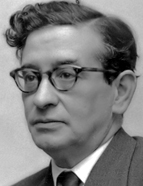

The use of history was essential to this process of renewal. The author reflected on history at different times—for Múrias, "[...] truly, a nation is its history [...] the history of a nation is its life, and not just its life in the past, but its mission: in the past, in the present, in the future; its vocation." ( O Seiscentismo em Portugal, p. 7). But this vision was, to a large extent, the vision of integralist positivism, that of History as a source of experience, of familiarisation with the problems of the present, of the idea that the past "teaches us to know the present and to clarify the future" and that its observation allows us to extract "the laws to which the nation, as a social body, is subject" (Luís Almeida Braga, "Do espírito da democracia" [The Spirit of Democracy], Nação Portuguesa , 1915). And although Manuel Múrias' historiographical work does not assume a uchronic perspective—like other traditionalist and monarchist authors do—it nevertheless takes on a nationalist dimension, with the apologetic aim of presenting events and characters from the past as a model ("Nacionalismo e Catolicismo. Conceito de tradição" [Nationalism and Catholicism. A Concept of Tradition], Nação Portuguesa , 1927). In the same way, he targets other characters. We can see this in excerpts which denote a clear anti-Semitism which, although not central to the whole of Múrias' work, is at least particularly present in several of his works (the Jews represented a "constitutional disease [whose] usurious racial character [...] aroused the animosity of the natively born" [ O Seiscentismo em Portugal, p. 38]; the Inquisition is said to have been "the result of an ancient dissidence between Portuguese and Jews who [...] were ostentatious and petty in their nature and trampled on the natively born" [idem, p. 39]; "Even today the Jews are, as they have always been, a cause of disorder and propellers of social disorganisation in many European countries […] [ Portugal: Império, p. 40]).
This work is financed by national funds through FCT - Foundation for Science and Technology, I.P, in the scope of the projects UIDB/04311/2020 and UIDP/04311/2020.
